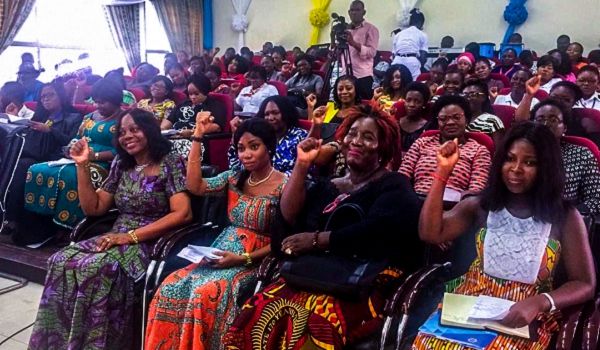
Campaign to improve working conditions of women launched
ActionAid, Ghana, has launched a campaign aimed at improving the conditions under which women in the informal sector work.
The campaign is dubbed, “Decent work for women in the informal economy”, and forms part of ActionAid’s global campaign themed, “Stop violence and harassment in the world of work”.
Advertisement
The ActionAid Ghana campaign draws inspiration from the global campaign which seeks to promote opportunities for women and men to work in conditions of freedom, equity, security and human dignity.
The campaign was launched at the Madina market in Accra yesterday and was attended by market women and members of domestic workers associations, including the Young Urban Women’s Movement.
Economic exploitation
In his address, the Country Director of ActionAid, Mr Sumaila Abdul-Rahman, said the organisation’s research and experiences had revealed in-depth understanding of rights violations young women workers faced in informal workplaces.
He said economic exploitation was real and went beyond the issue of poor remuneration, job security, working for long hours and doing unpaid work.
“It extends to easily overlooked areas such as social security, pension plan, limited access to saving, no paid annual and maternity leave, limited access to credit and financial support facilities and lack of health and safety measures during work and many more,” he said.
Mr Abdul-Rahman said even though conversations and campaigns around gender-based violence and sexual assault in the workplace had increased over the years, more needed to be done to change the trend and hence the campaign.
“The narrative needs to change. The revolting scenario of one in three women facing violence and harassment at work is unacceptable,” he said.
Improving the informal sector
The Head of Gender and Child Protection with the Trades Union Congress (TUC), Mrs Alberta Laryea-Djan, said women and men in the informal sector needed security of income, social protection and representation.
“An improved economy is certainly assured when women workers who form the majority in the informal economy are empowered to become aware of their rights and work towards achieving them,” she said.
She explained that the essence of decent work was to address poor employment and working conditions and called on “social partners to match the rhetoric on jobs with action so that collectively, we work to formalise the economy of Ghana”.
Victim’s ordeal
A victim of sexual harassment, Ms Beatrice Owusu, narrated her ordeal. She said she worked as a teacher at a private school but before she would be paid, the school owner always demanded sex.
“The school owner asked me for sex before paying my salary but I refused and so my salary was never paid for the couple of months I worked with the school,” Ms Owusu said.
Another victim, who suffered abuse at her workplace, Ms Esther Ampofo, said even though she was pregnant, she was made to work overtime at a juice factory.
“I peeled pineapple for juice and sometimes I got cuts from the knife I used as a result and was made to continue working even with my cuts.
Sometimes blood dripped from my wounds onto the peeled fruits but the managers did not mind when you complained,” she said.
According to her, after working for two weeks, she stopped because the abuse had become unbearable.



